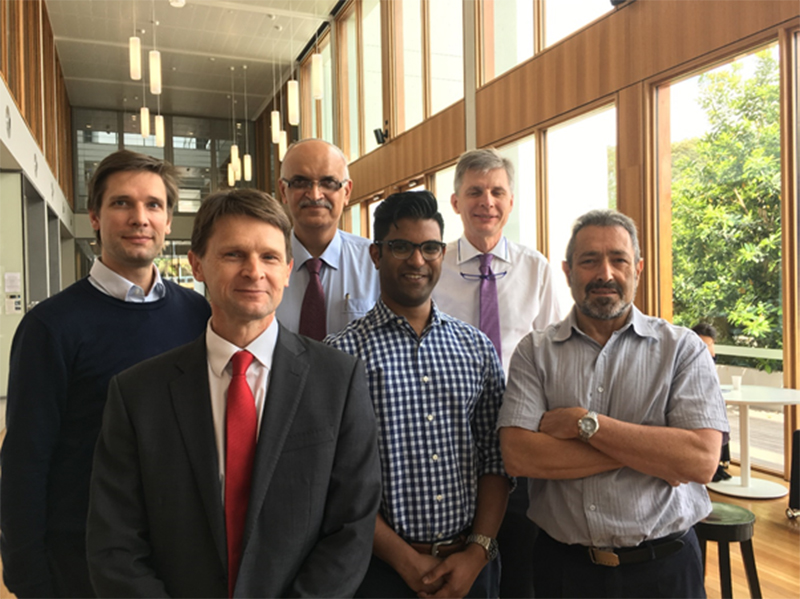October 27, 2016 Print
A conference of medical researchers and doctors at The Westmead Institute has raised hopes that solutions will be found to the growing problem of antibiotic resistance in the treatment of hospital-acquired sepsis.
 Professor Jon Iredell of The Westmead Institute for Medical Research (front) with some of the keynote speakers at the 2016 Short Course in Critical Infection.
Professor Jon Iredell of The Westmead Institute for Medical Research (front) with some of the keynote speakers at the 2016 Short Course in Critical Infection.
The two day Short Course in Critical Infection brought together experts in microbiology, infectious diseases and intensive care from across Australia to discuss a problem that is one of the health system’s biggest killers.
Conference organiser, Professor Jon Iredell of The Westmead Institute’s Centre for Infectious Diseases and Microbiology, said sepsis is “not a good news story.”
“Sepsis causes at least twice as many deaths per year as the road toll in Australia, and more deaths that prostate cancer, breast cancer and HIV combined.
“The problem is growing because of the development of antibiotic resistance and there has been a very nihilistic tone to discussions about the threat sepsis poses to our health system.”
Professor Iredell said, however, that there is currently a lot of promising research into both managing critical infections like sepsis in intensive care and also into finding novel solutions to antibiotic resistance.
But he said that despite the common interests of these researchers there has been a divergence in the conversations because of the disparity in the training backgrounds of the researchers.
“So we thought it was very important to use this event to bring intensive care researchers, microbiological and infectious diseases experts together to really elucidate where we are now and where we are going.”
Sepsis and septic shock can result from an infection anywhere in the body, such as pneumonia, influenza, or urinary tract infections. Worldwide, one-third of people who develop sepsis die.
The conference heard that one of the reasons for the increased occurrence of sepsis is, ironically, the improved ability of the health system to keep very ill, immunocompromised patients alive.
At the same time, the success rate in identifying and treating sepsis when it is acquired is improving.
“The biggest threat to our success is the potential loss of antimicrobials and the lack of awareness of the threat this constitutes.
“But improvements in awareness, plus high-quality research into sepsis, its causes and its management are beginning to yield some fruit and I think we have cause for optimism.”